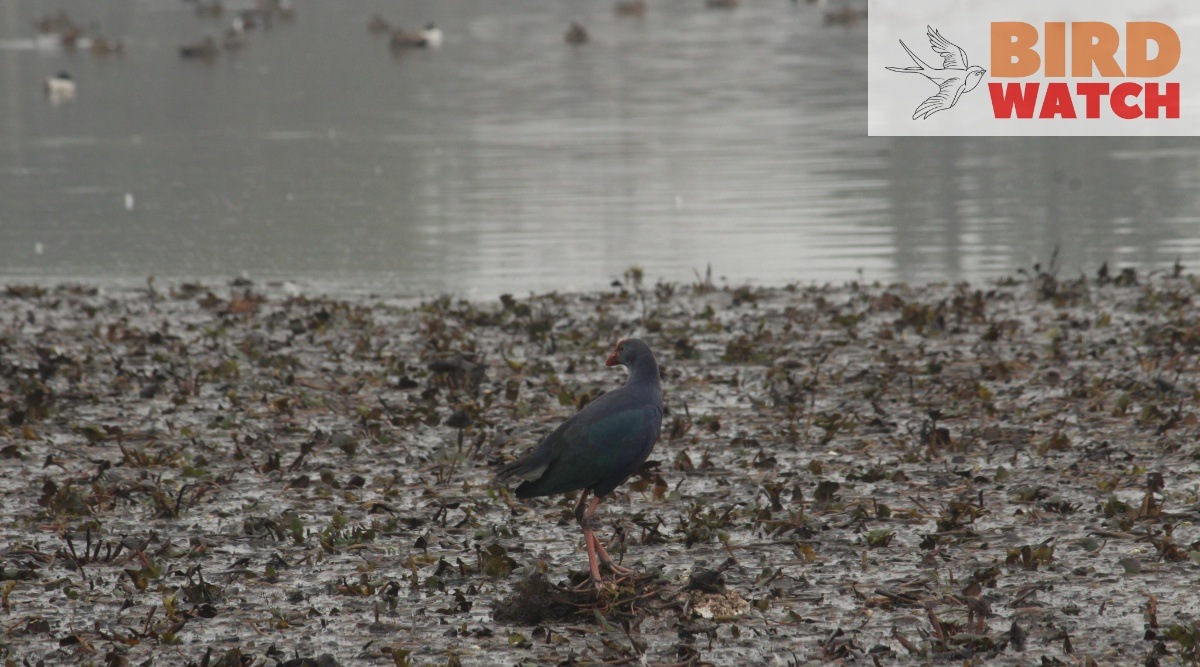 Purple Swamphen marks its presence in almost all the water bodies, including Sukhna Lake, Mote Majra Lake, Dhanas Lake, Siswan Dam etc in the Inter-State Chandigarh Region (ISCR).
Purple Swamphen marks its presence in almost all the water bodies, including Sukhna Lake, Mote Majra Lake, Dhanas Lake, Siswan Dam etc in the Inter-State Chandigarh Region (ISCR).The grey-headed swamphen, also known as a purple swamphen, is a waterbird with a red bill and forehead shield. It is a resident bird found commonly in the margins of lakes, ponds, and small water bodies. Its unique plumage is the main identifying characteristic of this bird, which flicks up the tail often revealing its fluffy white ‘underpants’.
The male and female Grey-headed swamphens appear alike. Its ability to walk on the leaves of water lilies and other plants in lakes and ponds makes it more attractive. Its ability to access the threat from any intruder is also unique.
Purple Swamphen marks its presence in almost all the water bodies, including Sukhna Lake, Mote Majra Lake, Dhanas Lake, Siswan Dam etc in the Inter-State Chandigarh Region (ISCR).
The sighting of a pair of purple swamphens chasing each other on the widespread leaves in water bodies is unforgettable. I sighted at least three fully grown pairs of purple swamphens on the banks of Mottemajra on a sunny day in January this year.
Subscriber Only Stories
Though Sukhna Lake has an ample presence of this waterbird, which makes short nasal grunts and croaking sounds, a larger number can be found at Mote Majra Lake.
These birds build nests on thick floating vegetation closest to the bank of the pond. According to ornithologists, the peak breeding activity occurs from the second week of January to the first week of March. This waterbird has one breeding season per year. The pair produces one or two clutches at that time. The clutch size varies from three eggs to seven eggs. Breeding varies with region, coinciding with spring.
- The Indian Express website has been rated GREEN for its credibility and trustworthiness by Newsguard, a global service that rates news sources for their journalistic standards.

